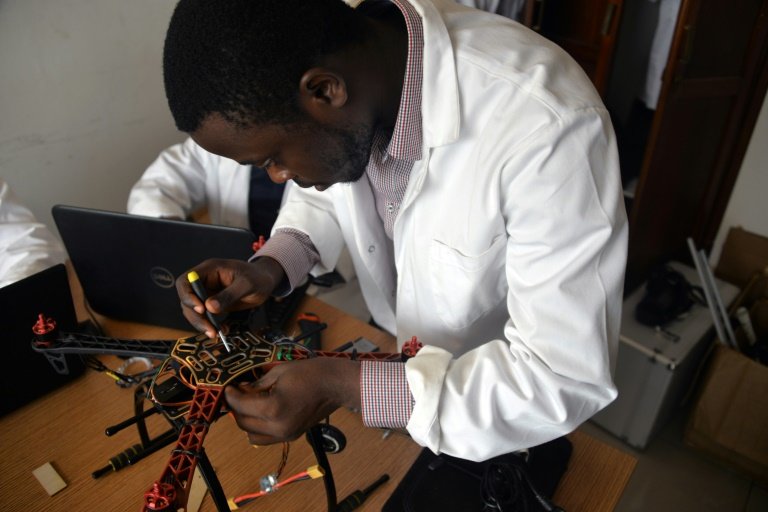Bachelor at fifteen, William Elong is the youngest graduate in Strategy and competitive Intelligence from the School of Economic War of Paris.
After a time spent working for big companies in France, he founded the start-up Will & Brothers, specialized in consulting in economic intelligence and technological innovation, and returned to Cameroon.
William is currently developing DroneAfrica, an initiative to offer services associated with drones in tourism, agriculture, meteorology, defense and cartography. In 2016,
William Elong was ranked 7th in the top 30 of Africa’s most promising young entrepreneurs of the year.
Elong hold a bachelor’s degree in sales management from HEC Business School Yaounde and an MBA in Strategy and competitive Intelligence from the School of Economic War of Paris.
The drone industry and economic intelligence specialist has teamed up with the French giant in the field of military UAVs. Faced with the conflict in Cameroon’s NW/SW regions, the military has a pressing need for such air assets.
“Our countries spend huge sums of money on contracting satellite imagery companies to address their geographical mapping needs,” Elong told Africa Renewal after unveiling the first-ever drone made in Cameroon in 2018. “Using drones is much cheaper, cost-effective and more practical.”
In addition, Elong noted that African countries usually depend on western firms to obtain aerial images at exorbitant prices. Therefore, going into drone manufacturing was not only to provide a local solution but to also provide one at a cheaper cost.
“African countries depend upon some service providers for aerial images. The latter are sold at prices that challenge the imagination, so we believe that drones are a simpler solution to meet this need, and many others, whether security or tourism,” Elong told Africa News Agency.
Offering drone services to companies and government organizations in Cameroon, he raised some $200,000 to advance his project in 2015. Elong started his venture with four employees and by 2017, he had grown his workforce to 22 spread over two continents. Some were working in the Douala headquarters while others operated from Germany, France and Côte d’Ivoire.











